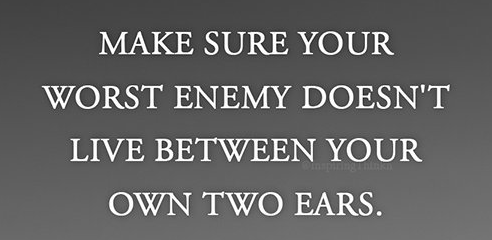
Today my thoughts are entitled “Don’t Keep Records of Bad Things” after I had an epiphany about not keeping records of bad things when I reached for my pen to write a response that was given to me.
Immediately, I found myself reflecting on those words, knowing that yesterday ended last night.
Since 1993 I’ve learned and put into practice that after 24 hours I must try and let it go.
General Colin Powell, the first Black US secretary of state, had 13 rules for life and work, with one of them being “Get made and get over it.”
If it was good enough for him, it was good enough for me.
Black American trailblazer Colin Powell’s 13 rules for life and work
We’re all human and for the most part, I’ve been successful employing various hacks tied to emotional intelligence regarding self-regulation and self-awareness.
If you have not read any emotional intelligence books, I challenge you to invest some time reading and working on creating a high emotional intelligence (EQ).
Over the last five years, I have somewhat redefined what it means to let things go and better understand the triggers that bring them from an unconscious to a conscious state of being.
“When dealing with people, let us remember we are not dealing with creatures of logic. We are dealing with creatures of emotion.” ~ Dale Carnegie, How to Win Friends and Influence People
Regardless of the situation, I know if I let my humanity get in front of my divinity, I will end up taking on something I don’t need in my life, particularly negative thoughts.
Jim Kwik calls them ANTS, (Automatic Negative Thoughts).
Stop the ANTs in Your Head with These Three Exercises — Jim Kwik
What about you? Do you have a mechanism in place that automatically takes you back into your unconscious mind and tells you to stop?
Therefore, if you are going to stop keeping records of bad things, I recommend that you first think about ways to prevent it.
Maybe it’s staying distracted, praying, taking time to meditate, working on various time-consuming tasks, going for a walk, or just solid mental acuity.
I mentioned earlier that yesterday ended last night for a reason because for me that’s part of my thought process for letting things go.
Many of you also understand my mantra from the Dali Lama “Don’t let the behaviors of other people destroy your inner peace.”
How many people do you know who like to keep records of bad things?
There’s probably a reason that they keep records of bad things.
As I listen to people recount the hurts they carry with them, many ask me, “Is it sinful to keep a record of how others have hurt me?” They are thinking about 1 Corinthians 13:5, which says, “[Love] keeps no record of wrongs.” I find this question central for abuse victims.
Is It Sinful to Keep a Record of Wrongs? | CCEF Blog
Besides, there is a danger of keeping score when people do bad things.
Years ago, I remember hearing when we hold grudges and allow various thoughts to enter our minds or are not willing to let things go, we are drinking the other person’s poison.
Maybe you have heard those words or experienced them as well.
I learned about joy robbers over twelve years ago.
I also served as an Army Civilian Master Resilience Trainer (MRT) who, in turn, taught the skills of being resilient to my subordinates, and other Army civilians. Every day we should try to Hunt for the Good Stuff (HTGS).
Resiliency: Hunt the Good Stuff > Charleston District > Charleston District News Stories
DPRR: Create Positive Emotions
Joy robbers are everywhere and ironically this past weekend at Mass, Joy was part of the message from the letter of Paul to the Philippians.
Dealing with Joy Robbers – Pathway to Victory
I’m forever grateful that having faith is an important part of my life for not keeping records of bad things.
Ironically, also this week the third candle was lit for Advent symbolic of Joy.
There is a difference between joy and happiness.
The definition of joy is “a feeling that is evoked by wellbeing or good fortune,” whereas happiness is defined as a “state of wellbeing.” This implies that joy occurs for a brief, defined period of time, whereas happiness is a state of being that is, for the most part, ongoing.
Joy Vs. Happiness: What’s The Difference? | BetterHelp
Today, take some time and ask yourself what records of bad things you are keeping and what purpose are they serving you.
Maybe it’s a specific ego you are dealing with that could get you in trouble. This is another example of letting your humanity get in front of your divinity.
A person with a fragile ego has weak and inconsistent self-esteem. Their sense of self-worth is volatile and subject to the whims of life circumstances and others’ judgments.
7 Signs of a fragile ego & how to fix it
As I close with the knowledge that I may be speaking to the choir on this topic, therefore, if something resonates, I would love to hear about your various hacks or mechanisms in place.
On the other hand, if I’m speaking to you try and find a way to better understand why this is important in the long run.
I don’t want you to merely just to survive, I want you to thrive in all aspects of life.
On this Monday morning, “I still have joy” as Joe Pace sings the lyrics which are part of the hacks I have in place.
Each of us needs encouragement along the way and I challenge you to find yours and accept it in any way you can.
“Love keeps no record of wrongs, but bitterness keeps detailed accounts.” ~Craig Groeschel
Blog source: https://mckinleysthoughts.com/dont-keep-records-of-bad-things/
















0 comments:
Post a Comment